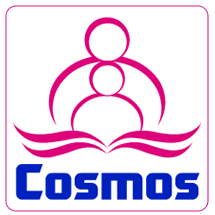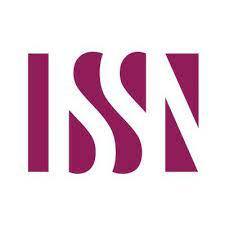Self-Control Strategies for Handling Student’s Disruptive Behavior in the Classroom at Secondary Level
DOI:
https://doi.org/10.5281/ijete.v2i2.43Abstract
This study was conducted to find out self-control strategies for handling student’s disruptive behavior in the classroom at secondary level in Tehsil Jand District Attock. The current study was quantitative in nature and descriptive research method was used to conduct the study. The population of the study consisted of all the secondary and higher secondary school teachers. Simple random sampling technique was used for the selection of sample of teachers (200). A five-point Likert scale questionnaire was used as a tool in this study. The researcher applied frequency, percentage, mean and standard deviation for the analysis of data. It was found that teacher’s self-control strategy self-understanding is helpful in handling student’s disruptive behavior, teacher prepared for each activity and complete work on time and he can identify what he like or dislike.
Downloads
References
Blair, C., et al. (2021). Teacher Self-Regulation and Student Engagement: A Longitudinal Study. Journal of Educational Psychology, 113(2), 347-362. DOI: 10.1037/edu0000584.
Bradshaw, C. et al. (2021). Teacher-Student Relationships and Student Engagement: A Longitudinal Study. Journal of Educational Psychology, 113(3), 547-562.
Burden, P. R. (2020). Classroom management: Creating a successful K-12 learning community. John Wiley & Sons.
Constantia, C., Christos, P., Glykeria, R., Anastasia, A. R., & Aikaterini, V. (2023). The impact of COVID-19 on the educational process: the role of the school principal. Journal of Education, 203(3), 566-573.
Converse, B. A., Juarez, L., & Hennecke, M. (2019). Self-control and the reasons behind our goals. Journal of personality and social psychology, 116(5), 860.
Domitrovich, C. E., Durlak, J. A., Staley, K. C., & Weissberg, R. P. (2017). Social‐emotional competence: An essential factor for promoting positive adjustment and reducing risk in school children. Child development, 88(2), 408-416.
Drane, C. F., Vernon, L., & O’Shea, S. (2021). Vulnerable learners in the age of COVID-19: A scoping review. The Australian Educational Researcher, 48(4), 585-604.
Duckworth, A. et al. (2021). Grit and Flexibility in Teaching: A Longitudinal Study. Journal of Educational Psychology, 113(3), 531-546.
Eiser, J. R., & van der Pligt, J. (2015). Attitudes and decisions. Psychology Press.
Fuchs, T. et al. (2021). Teacher Problem-Solving Strategies and Student Outcomes: A Systematic Review. Educational Psychology Review, 33, 100355.
Goleman, D. (2020). Emotional Intelligence: Why It Can Matter More Than IQ. Bantam Books. ISBN: 978-0553383713.
Herman, K. C., Prewett, S. L., Eddy, C. L., Savala, A., & Reinke, W. M. (2020). Profiles of middle school teacher stress and coping: Concurrent and prospective correlates. Journal of School Psychology, 78, 54-68.
Hofmann, S. G., et al. (2020). The Effect of Teacher Self-Regulation on Student Outcomes: A Meta-Analysis. Journal of Educational Psychology, 112(3), 531-546. DOI: 10.1037/edu0000436.
Jepson, E. et al. (2021). Teacher Self-Efficacy and Job Satisfaction: The Impact of Problem-Solving Strategies. Teaching and Teacher Education, 98, 103245.
Katz, D. et al. (2021). Teacher Flexibility and Student Outcomes: A Systematic Review. Educational Research Review, 33, 100353.
Kratochwill, T. R., et al. (2020). Self-Regulation Strategies for Teachers: A Systematic Review. Educational Psychology Review, 32(1), 1-23. DOI: 10.1007/s10648-019-09496-6.
Montroy, J. J., Bowles, R. P., Skibbe, L. E., McClelland, M. M., & Morrison, F. J. (2016). The development of self-regulation across early childhood. Developmental psychology, 52(11), 1744.
Morris, J. (2020). Human Dignity: In (pragmatistic) defence of a (purportedly) useless concept (Doctoral dissertation).
Myers, S. S., & Pianta, R. C. (2008). Developmental commentary: Individual and contextual influences on student–teacher relationships and children's early problem behaviors. Journal of Clinical Child & Adolescent Psychology, 37(3), 600-608.
Patnaik, S., & Subban, P. (2023). Challenging Behaviours in Primary Classrooms: Examining Causal Attributions and Strategies Used by Primary School Teachers in India. Australasian Journal of Special and Inclusive Education, 1-18.
Pecha, R. (2023). Rural High School Students’ Perceptions of Their Schools’ Student Behavioral Approaches (Doctoral dissertation, Edgewood College).
Reyes, M. R., et al. (2021). Teacher Self-Regulation and Student Motivation: A Systematic Review. Teaching and Teacher Education, 98, 103244. DOI: 10.1016/j.tate.2021.103244.
Sano, A., Sariro, S., & Zola, N. (2022). Descriptive Analysis of Students' Self-Control in Learning and the Aspects that Influence it. KONSELI: Jurnal Bimbingan dan Konseling (E-Journal), 9(2), 179-184.
Schmeichel, B. J., & Inzlicht, M. (2013). Incidental and integral effects of emotions on self-control. Handbook of cognition and emotion, 272-290.
Shachar, M., & Fischer, C. (2022). The Impact of Teacher Self-Regulation on Student Achievement: A Meta-Analysis. Journal of Educational Psychology, 114(1), 151-166. DOI: 10.1037/edu0000665.
Simonton, K. L., & Garn, A. (2019). Exploring achievement emotions in physical education: The potential for the control-value theory of achievement emotions. Quest, 71(4), 434-446.
Sugai, G. et al. (2021). School-Wide Positive Behavioral Interventions and Supports: A Framework for Reducing Student Misbehavior. Journal of Positive Behavior Interventions, 23(1), 34-46.
Tavakol, M., & Tavakoli, M. (2022). The professional identity of Iranian young-learner teachers of English: A narrative inquiry. Linguistics and Education, 71, 101101.
Tice, D. M., Bratslavsky, E., & Baumeister, R. F. (2018). Emotional distress regulation takes precedence over impulse control: If you feel bad, do it!. In Self-regulation and self-control (pp. 267-298). Routledge.
Triastuti, A. (2020). Assessing English pre-service TEACHERS'KNOWLEDGE base OF teaching: linking knowledge and self-portrayal. TEFLIN Journal, 31(1), 108-138.
Waller, L., Walters, S., Satchell, N., Johnson, S., Daley, G., & Reid, H. (2023). Promoting Democratic Governance among the Jamaican Youth through Civic Education: The Experiences of the UWI-Mona Department of Government's Governance Society. In Rethinking Democracy and Governance (pp. 244-261). Routledge.
Weinberg, R. S., & Gould, D. (2023). Foundations of sport and exercise psychology. Human kinetics.
Yilmaz, R., & Karaoglan Yilmaz, F. G. (2023). Problematic internet use in adults: the role of happiness, psychological resilience, dispositional hope, and self-control and self-management. Journal of Rational-Emotive & Cognitive-Behavior Therapy, 41(3), 727-745.
Zedner, L. (2017). Securing liberty in the face of terror: Reflections from criminal justice. In Civil Rights and Security (pp. 231-257). Routledge.
Zipagan, F. B., & Galvez Tan, L. J. T. (2023). From Self-Compassion to Life Satisfaction: Examining the Mediating Effects of Self-Acceptance and Meaning in Life. Mindfulness, 1-10.
Downloads
Published
How to Cite
Issue
Section
License
This is an Open Access article distributed under the term of the Creative Commons Attribution 4.0 International licenses permitting all use, distribution and reproduction in any medium provided the work is properly cited.

























